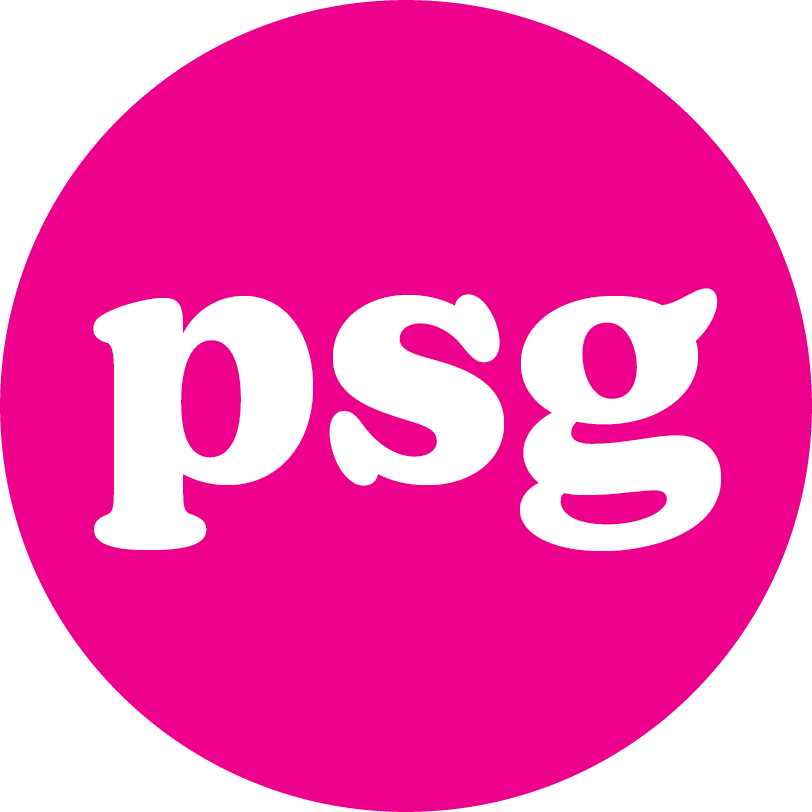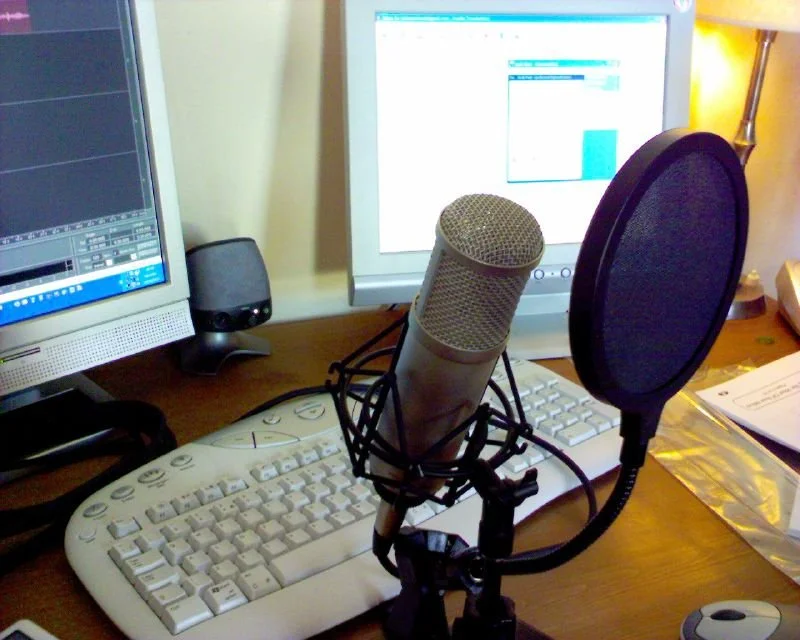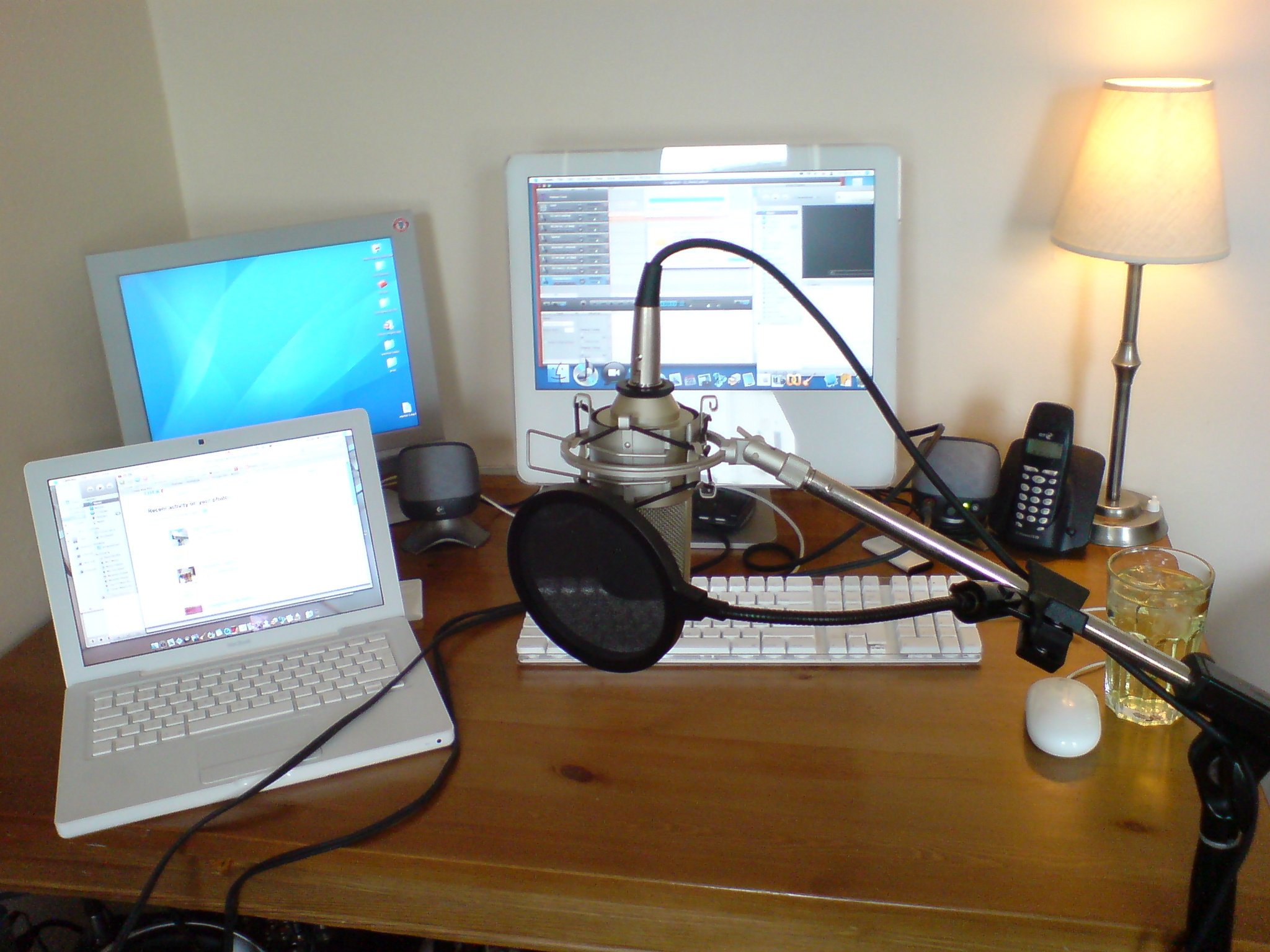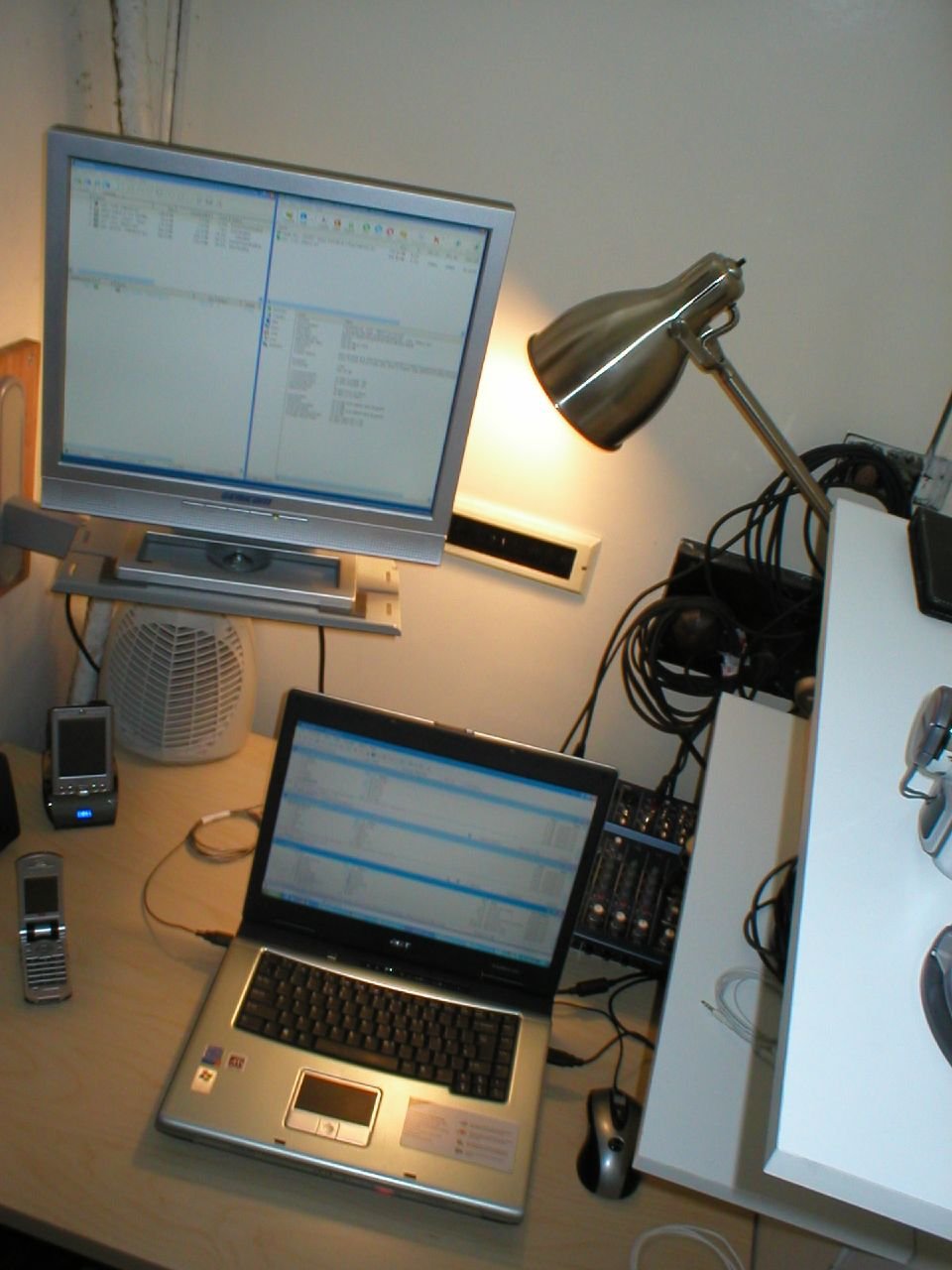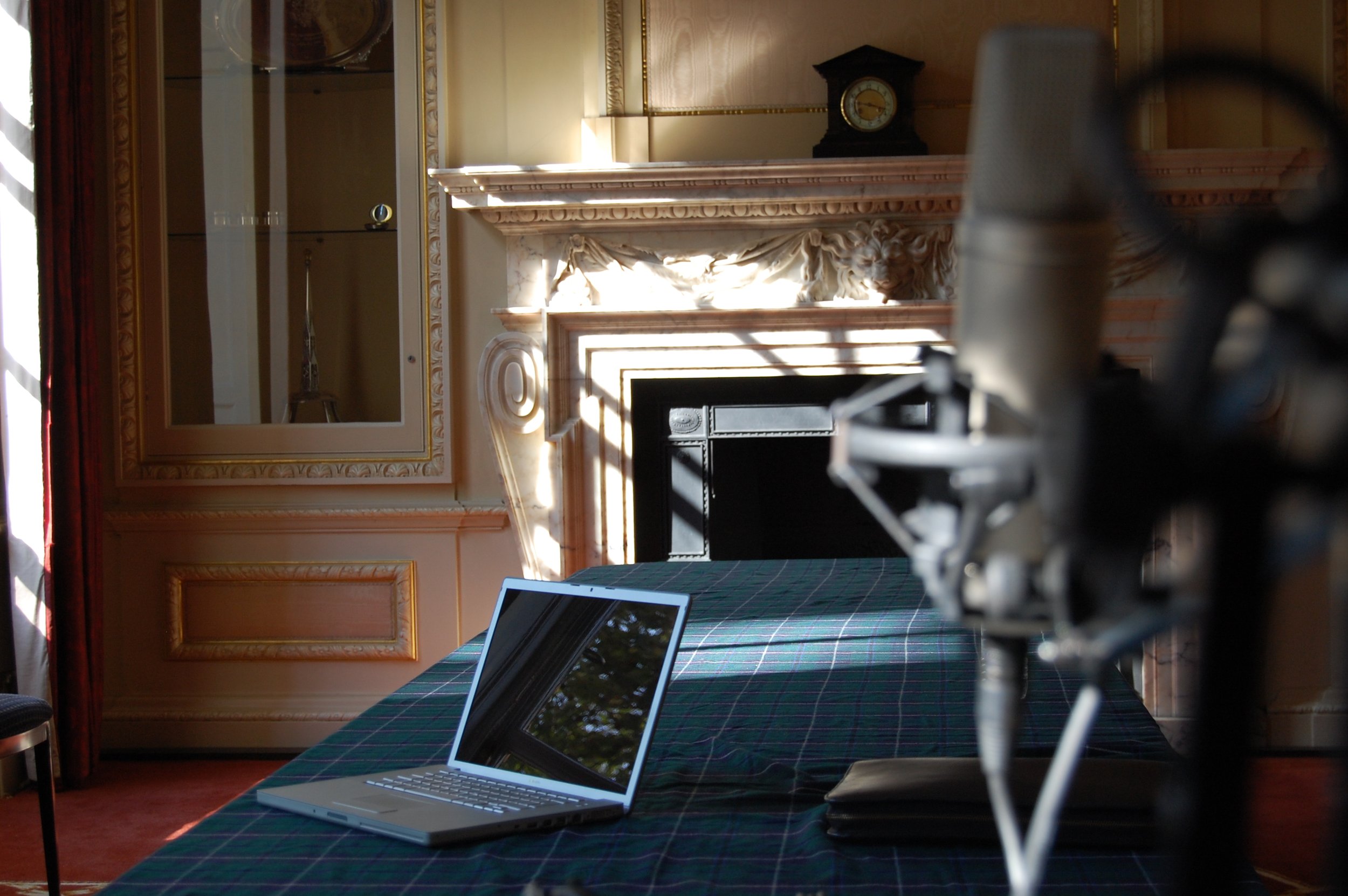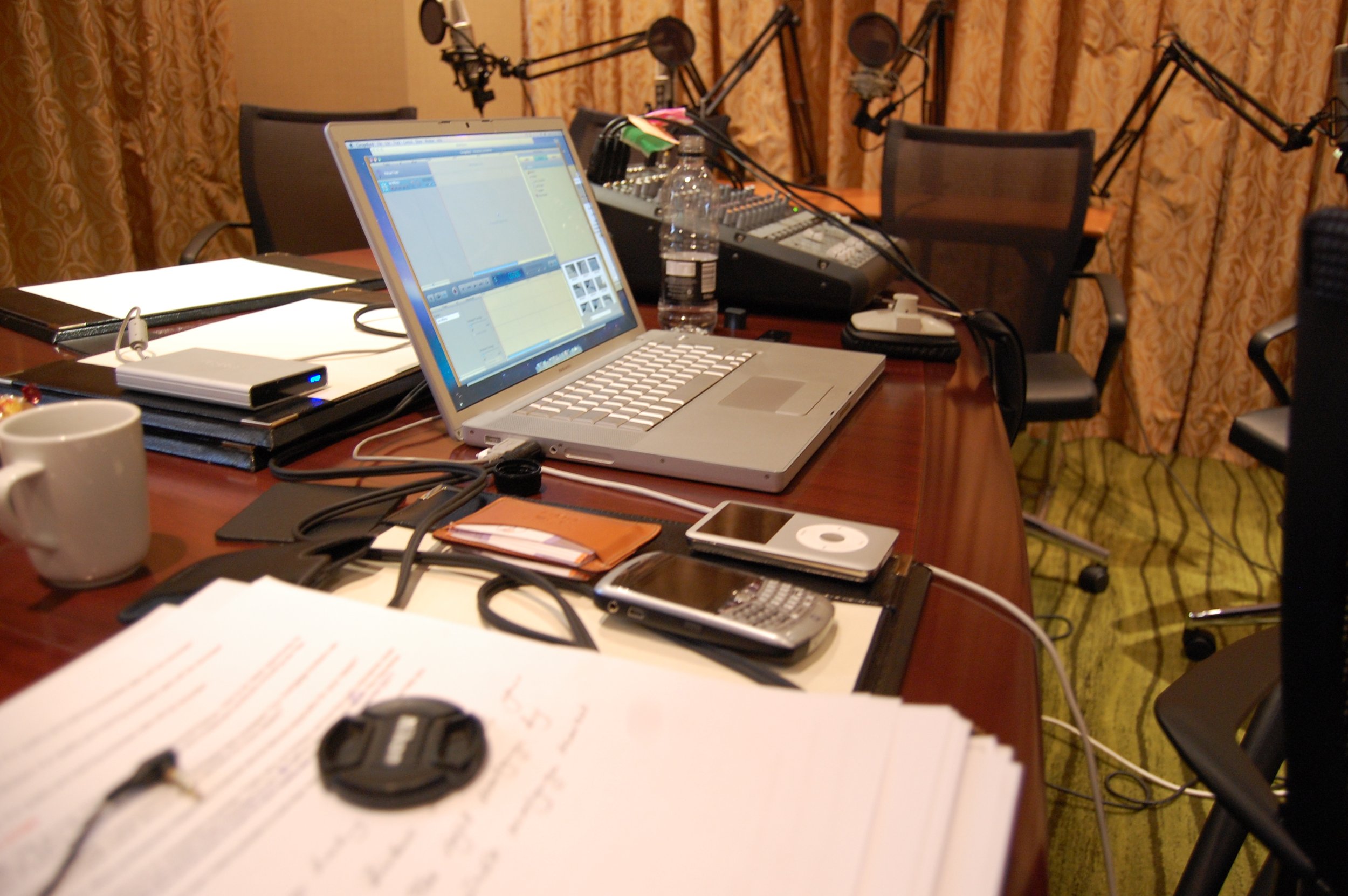How I Got Started in the World of Podcasting
I was listening to episode 2 of the fantastic Pop Culture Patter Podcast where the host, Callum, with true clarity and honesty spoke about the journey that led him to start his podcast.
His story got me thinking back through the mists of time to the year of our Lord, 2005, when I fired up Audacity on my desktop PC, complete with boxy CRT monitor, and rambled into a cheap PC World mic about…well, to be honest, I’ve no recollection.
And unfortunately, the mp3 of that recording has long since been sent to the great recycle bin in the sky. But I did include the whole recording as part of episode 50 of the tartanpodcast. An episode of the world’s first music podcast, dedicated to unsigned Scottish artists, which you can listen to below. And it features liberal sprinklings of amazing Scottish bands, whose music allowed me to run the podcast in the first place.
You’ll hear snippets from an interview I did on BBC Radio Scotland, off the back of an interview conducted by Clark Boyd for the World, a technology-based radio show that aired across America on NPR. This all took place in the summer of 2005.
It was a crazy time. It felt like the dawn of something exciting.
Back then the idea of a professional podcast studio was an absolute pipedream.
The production standards for podcasters back then were pretty low. In fact, those lo-fi production sounds were part of what made podcasting accessible and quaint for some.
Times have changed and expectations have grown.
As podcast consumers, we’ve probably grown quite fussy and picky about what we’ll tolerate listening to. Anyway, here are some photos of my podcast set up “back in the day”.
The photo below was taken around May 2005. Yeardley Smith had sent me £1200 as a PayPal donation, which was absolutely unreal. I used some of that money to buy a proper studio mic (an SE Electronics large diaphragm condenser mic, which was completely the wrong choice of mic) and a couple of monitors, plus a Yahama mixer. I still didn’t really have a clue what I was doing and it took me a while to dial in a good sound from the mic and learn how to use a “cracked” copy of Adobe Audition (shh) to edit on.
I think the setup above was circa 2006, or late 2005 at the earliest. By then I’d made a bit of money from advertisers on my show (Absolut vodka were one) and was making money as a podcast producer. So, I’d been able to upgrade my podcast set up quite a bit and had moved onto using Macs.
Before this, I was briefly located in the tiny vestibule of the house we lived in at the time, as seen below.
Unreal…
By 2008 I was travelling around the UK producing podcasts for clients full-time, and I’d set up wherever I needed to be. Myself, and the guy I worked with, Gordon White, would drive to where we needed to be, the boot of his car filled with mics, mic arms, pop shields and a mixer.
Like below. The first picture was taken in the Caledonian Club in London, where I’d stayed the night before recording a podcast for a building society if I remember correctly.
And the photo above was taken in a conference room of a hotel in Leicester where I had a queue of clients who came in during the day to record podcast episodes. This was in 2008. By then, I’d quit my job as a self-employed window cleaner and was one of the few amateur podcasters who’d transitioned into being able to “give up the day job” and podcast full-time. In my case, producing podcasts for other people. And being paid for it. Like a real job.
In late 2005 I was approached by two organisations to produce podcast content for them. True early adopters of this new medium. So, I’d take days off from window cleaning and become a “professional podcast producer”. I was probably the first person in the UK with that title. Maybe.
By 2009 I was working full-time, running my own digital marketing business. My first client was an e-commerce tool firm based in Uddingston. I pitched the idea of a podcast to them. They loved it. So we made well over 100 episodes, probably closer to 200.
I remember for the 100th episode we live-streamed the recording of it. This was in 2010. Lightyears ahead of its time for that sort of content… I remember my co-host wore a kilt and I wore a tuxedo.
I can’t remember why that podcast ended. Maybe it was too niche. I’m not sure. But it did end. And I had transformed myself into the go-to guy for all things digital content creation, being used as an ‘expert consultant’ on Scottish government programs to help Scottish destination businesses do better with their digital marketing. I’d fly to Islay for the day, run 2 workshops, and then fly home. Or I’d drive to Wick for a workshop - via Inverness - stay over in Thurso, do another workshop in the morning, and then drive back to Glasgow. Or get the ferry to Mull on a Monday evening, run 2 workshops the next day, then get the ferry and drive back home.
By 2019, I had the podcast itch back, 14 years after I first started. I hadn’t recorded any podcasts for maybe 6 years or so. I had a chat with a guy called Andy Currie and during the chat, I said, “y’know, this could have been the episode of a podcast”. So, within a couple of weeks, we launched the Social Experiment Podcast, recording the first episode - with video - in the backroom of my mate’s barbershop.
Then I got tapped up to work with an English media company to executive produce a football podcast, which we recorded every week in a beautiful building on West George Street. Not long after that, Fergus Reid got in touch and we hatched a plan to help turn a popular BBC Radio Scotland program into a podcast. To be honest, the hosts were….well, I’ll leave that there.
Cam, who’d appeared on a few episodes of the tartanpodcast as a “movie reviewer” (he was 5 at the time), came on board and executive produced the one and only episode of the Craft Gin Podcast, a show that was killed stone dead by the lockdowns (episode 1 was recorded the week before the lockdown came into force in March 2020, if I remember correctly).
Ferg I released a few episodes of the Talking Shop Media Podcast. I’m not 100% thrilled with the production values if I’m honest. But the chat I had with business owner Jim Hopkins is a belter. You can listen to it here, recorded in February 2021.
By the summer of 2021, my good mate Neil and I had started a podcast that was a true creative release for me. It did wonders for my mental health. Cam served as the producer. Unfortunately, none of the episodes exists on the internet anymore, which is a shame. But it was this podcast that led to the idea of opening a podcast studio…
So, here we are in 2023. And the buzz for creating podcasts hasn’t gone away.
Sure, the nature of the medium has changed massively. These days, new, hobbyist podcasters want 3 camera video feeds and they’re using high-end, broadcast-standard mics to record with, and they’re syndicating their podcast episodes to multiple platforms to be downloaded and listened to by a global audience who understand the medium of podcasting, and uploading YouTube videos of their podcast and creating 60-second reels for Instagram and TikTok with animated subtitles…
None of that was a thing in 2004 or 2005. Or even 2012.
And what’s cool about all of that is I can help them scratch their creative itch.
Like the one Callum had that resulted in him coming to the Podcast Studio Glasgow to record his Pop Culture Patter Podcast.
What a trip.
